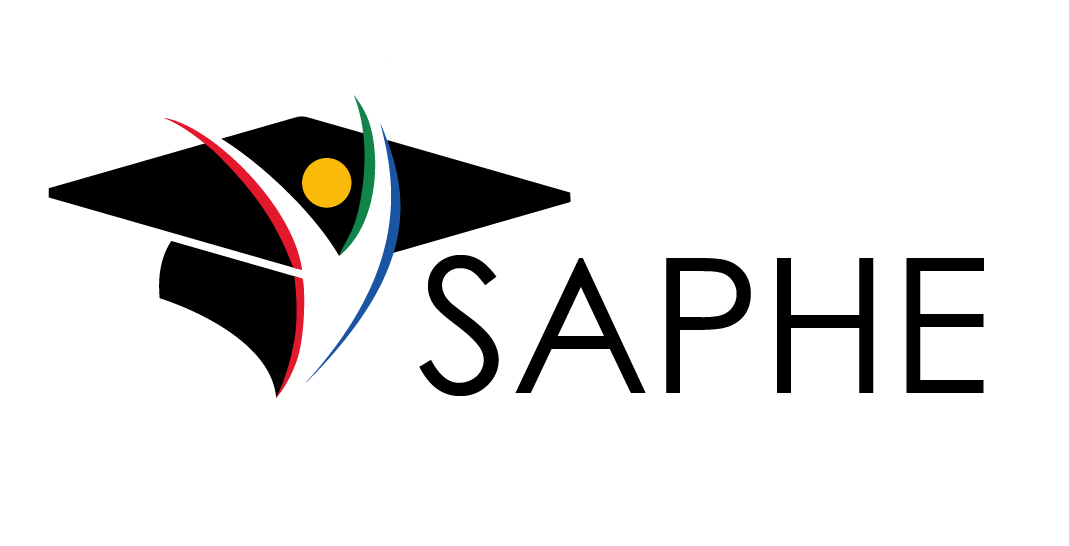South African Private Higher Education Working together to promote and enhance private higher education in South Africa.
Conference
A two-day conference under the theme
Leading Innovation in
Higher Education: Impacting Locally and Globally
5 - 6 November 2025
SAPHE Board

South Africa celebrates a historic milestone as the Matric Class of 2025 achieves a record 88% pass rate, the highest in the country’s history. SAPHE (South African Private Higher Education Association) congratulates all matriculants on this remarkable achievement, which opens doors to a wide range of higher education opportunities. Approximately 46% of matriculants achieved Bachelor passes, making around 345,000 students eligible to pursue degree studies. While public universities remain a key option offering 235,000 first-year spaces, private higher education institutions (PHEIs) offer an equally robust and accredited pathway for students ready to continue their studies. Flexible Intakes and Learning Options A major advantage of PHEIs is their multiple intakes throughout the year , allowing students to begin their studies at different times of the year. This flexibility ensures that learners can maintain momentum and enrol for higher education qualifications as soon as they are ready. PHEIs also offer flexible learning modes - full-time, part-time, online, or blended - designed to accommodate diverse student needs. Smaller class sizes promote personalised attention , helping students make a smooth transition from school to tertiary education. Curricula are regularly updated to align with industry demands , equipping graduates with the skills employers actively seek. Quality, accreditation, and recognition All SAPHE member institutions are registered with the Department of Higher Education and Training (DHET) and offer programmes accredited by the Council on Higher Education (CHE) . These qualifications are nationally recognised, ensuring that students receive the same high-quality education as public universities. Registered PHEIs provide full academic legitimacy, and a list of SAPHE members is available on the SAPHE website. Private higher education institutions continue to welcome applications for the 2026 academic year , providing matriculants with immediate access to accredited programmes. PHEIs are a credible, flexible, and high-quality option to consider for students ready to take the next step in their education.
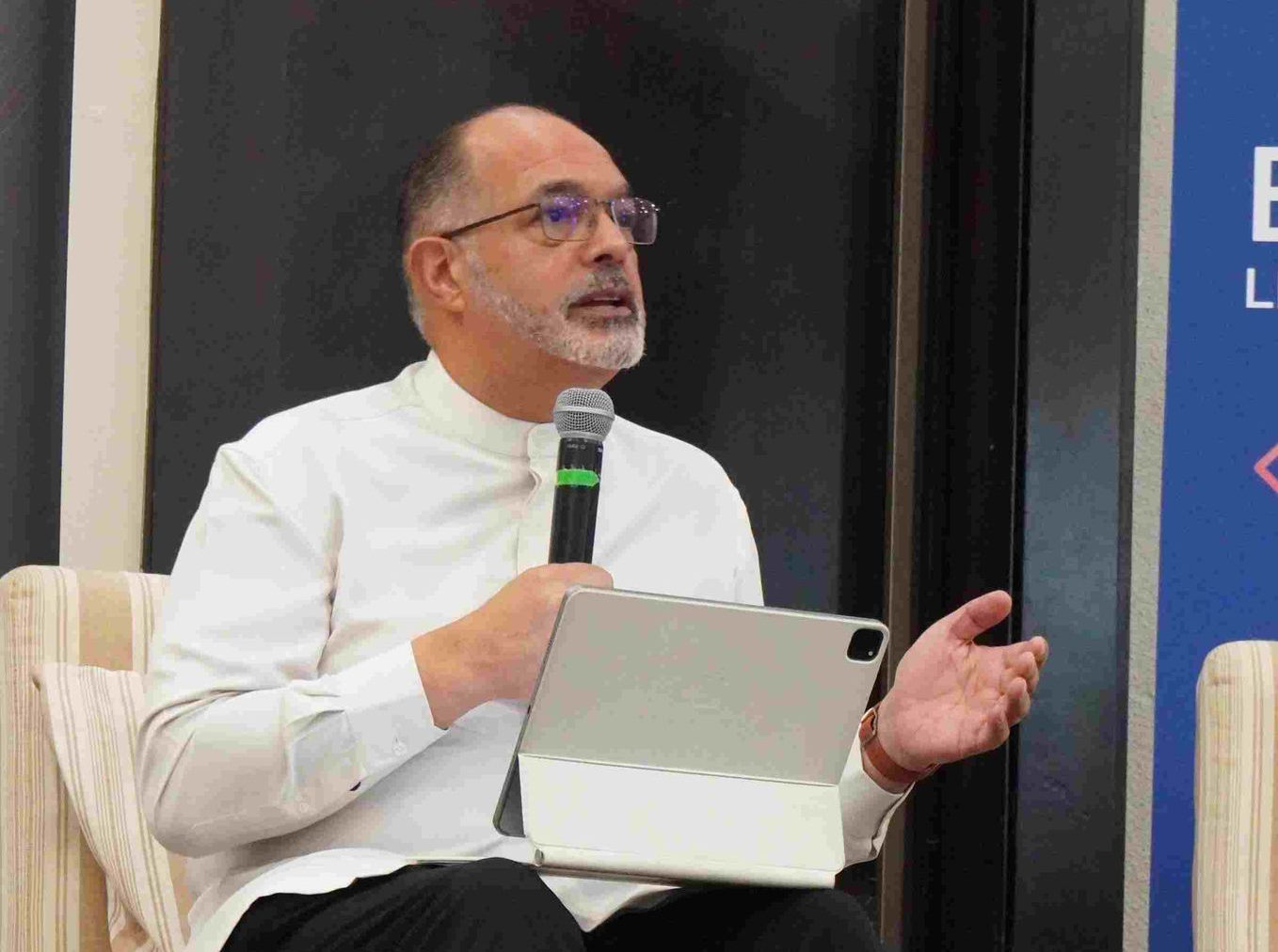
A peek into the future or a glimpse into a novel research project; a celebration of academic excellence or connecting with colleagues – the 3rd SAPHE Conference, held on 5 and 6 November at the IMM Graduate School in Parktown, Johannesburg, was a vibrant Rubik’s cube of colour, choice, and possibilities. Under the theme Leading Innovation in Higher Education: Impacting Locally and Globally , the Conference served as a dynamic platform to explore, reflect on, and challenge thinking about innovation in the sector. Setting the tone with probing questions and scenarios were keynote speakers Mahlubi Chief Mabizela (USAf Director: Operations and Sector Support) and Edward Kieswetter (SARS Commissioner), delivering thought-provoking addresses on their respective days. Following them, two engaging panel discussions – one on the future of private higher education, facilitated by Africa Melane, and the other on the opportunities and challenges of Artificial Intelligence, led by Professor Ben Anderson – sparked lively debates and inspired delegates. The Conference also provided a space to showcase and promote research, with presentations across a range of themes. Delegates participated in two workshops: AI as Research Ally and Quality as Intellectual Curiosity: Rethinking Quality Assurance in Higher Education. Together with the SAPHE Excellence Awards, which celebrate academic excellence in private higher education across Teaching, Learning and Assessment, Research and Innovation, and Community Engagement, the event highlighted innovation, scholarship, and achievement in the sector. SAPHE is grateful to its gold sponsors – Cengage, Opencollab, and Juta – and silver sponsors – Oxford University Press, Van Schaik, and EBSCO – for their generous support, which helped make the Conference possible. The 3rd SAPHE Conference was not just an event but an experience – a space where ideas, innovation, and collaboration came together to shape the future of private higher education in South Africa.
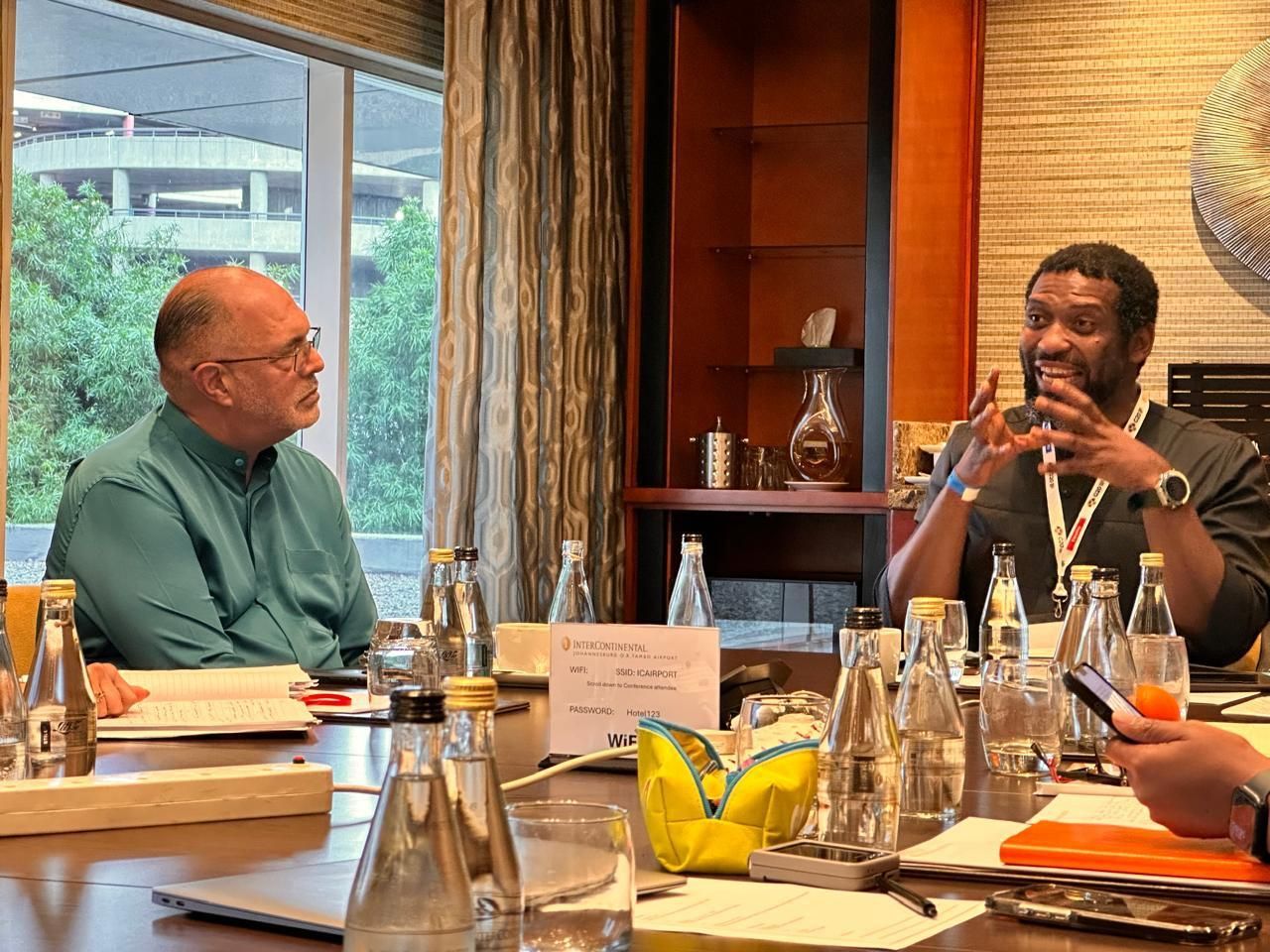
On 21 November 2025, a SAPHE delegation met with the Minister of Higher Education and Training, Mr Buti Manamela, to discuss the role of private higher education institutions (PHEIs) in shaping South Africa’s Post-School Education and Training (PSET) system. Representing SAPHE were Edward Kieswetter, Prof Divya Singh, Prof Ahmed Shaikh, Dr Linda Meyer, and Nancy-Anne Anderson. Minister Manamela acknowledged the important contribution of PHEIs, which account for nearly 30% of higher education enrolments in South Africa. He emphasised the value of their participation in shaping policy, determining the “size and shape” of the system, and strengthening national capacity. The meeting focused on several priority areas, including legislation, articulation pathways, building trust in the system, and industry engagement. Both SAPHE and the Minister highlighted the importance of continued collaboration to ensure a more coherent, inclusive, and responsive higher education sector. The shared commitment demonstrated during the meeting provides a strong foundation for an ongoing partnership between SAPHE and the DHET, reinforcing the role of private higher education in shaping South Africa’s PSET landscape.
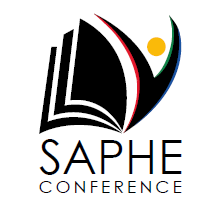
With a week to go before the 3rd SAPHE Conference on 5 and 6 November at the IMM Graduate School in Parktown, Johannesburg, anticipation is running high. Under the theme “Leading Innovation in Higher Education: Impacting Locally and Globally,” the Conference will serve as a dynamic platform to explore, reflect on, and challenge thinking about innovation in the sector. Well-known speakers Mahlubi Chief Mabizela (USAf Director: Operations and Sector Support) and Edward Kieswetter (SARS Commissioner) will set the tone, delivering the keynote addresses on the respective days. Taking the baton from them, two panel discussions – one on the future of private higher education, facilitated by Africa Melane, and the other on Artificial Intelligence, led by Professor Ben Anderson – are sure to engage and inspire delegates. As a space to showcase and promote research, the Conference will also feature presentations across a range of themes, complemented by two hands-on workshops: AI as Research Ally and Quality as Intellectual Curiosity: Rethinking Quality Assurance in Higher Education. Together with the SAPHE Excellence Awards, the event promises to challenge conventional thinking, inspire innovation, and celebrate academic excellence in private higher education. SAPHE is grateful to its gold sponsors – Cengage, Opencollab, and Juta – and silver sponsors – Oxford University Press, Van Schaik, and EBSCO – for their generous support. With its rich mix of thought leadership, research, and collaboration, the 2025 SAPHE Conference promises to challenge convention, inspire new ideas, and celebrate the spirit of innovation in private higher education.
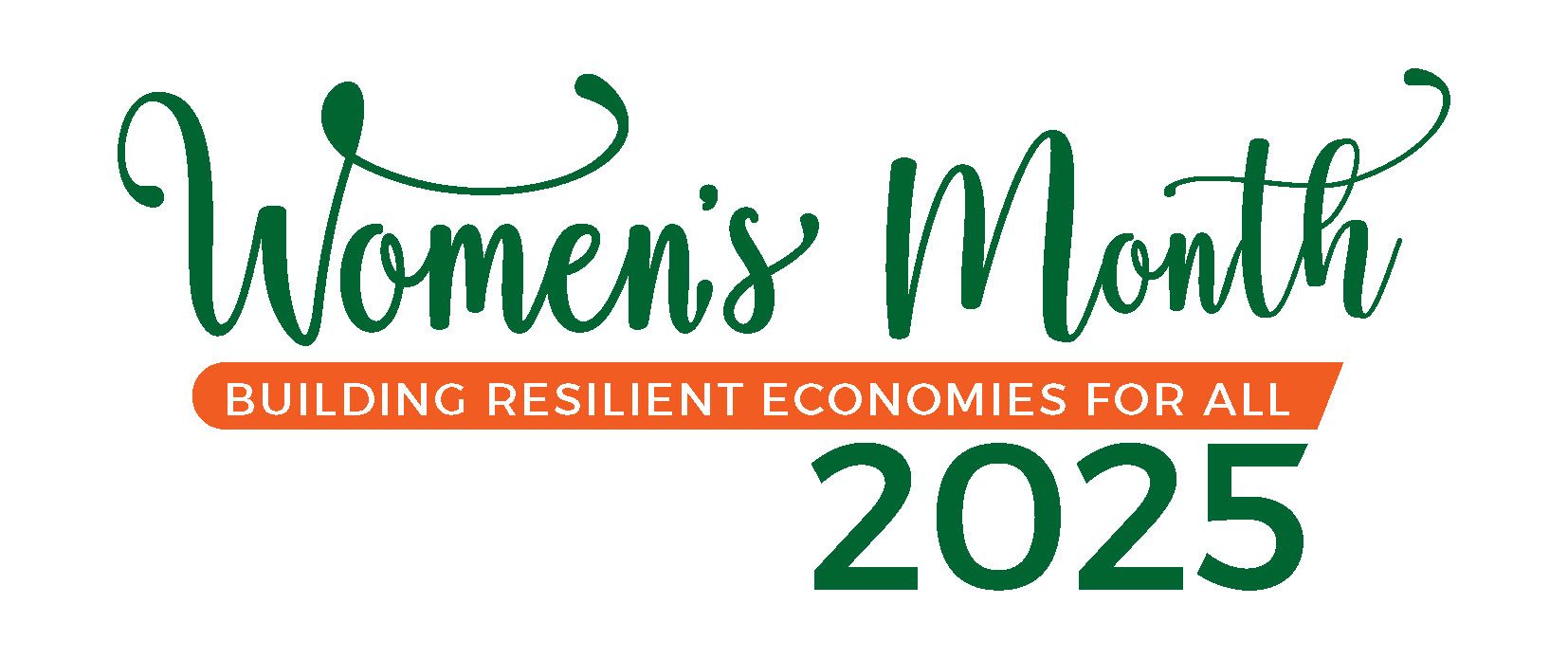
In celebration of Women’s Month , SAPHE spoke to Dr Marianne Louw , Executive Dean at Cornerstone Institute, leadership specialist, and author of Leading Experts: How to bring out the best in clever team members. Dr Louw brings a wealth of experience and insight to the conversation on women in leadership. Navigating leadership: Challenges women face According to Dr Louw, women leaders tend to face two broad categories of challenges: environmental and internal. Understanding both is key to creating more equitable and empowering workplaces. Environmental challenges , she explains, are often systemic. “Many women struggle to get ahead at work because they continue to carry a disproportionate share of household and family responsibilities compared to their male spouses and colleagues.” This burden is exacerbated by the outdated notion of the “ideal worker” — someone fully devoted to work and constantly present in the office. Such a model excludes many women from key leadership opportunities. She says research also shows that women take on the majority of ‘office housework’ – spending time (often beyond their official responsibilities) helping colleagues maintain work-life balance and championing diversity and inclusion. This important work is rarely formally recognised and adds further stress on women in leadership roles. How can this be addressed? Dr Louw believes that organisations must take deliberate steps: “Senior management should recognise the value of this work and ensure these responsibilities are acknowledged and rewarded. Creating workplaces that are both flexible and predictable in terms of schedules can also make a major difference.” We should challenge the outdated ‘ideal worker’ model that undervalues those who cannot conform to it.” Overcoming internal barriers Furthermore, women also often have to contend with internalised norms and communication habits that can undermine their leadership presence. Dr Louw highlights that women who communicate in traditionally feminine ways — with inclusivity and tentativeness — may find it harder to gain the respect of colleagues who favour a more assertive, masculine style. “In meetings, many women tend to preface their contributions with phrases like, ‘Sorry, I just want to add…’ or ‘I’m not sure if this is relevant, but…’” she says. “While these approaches are well-intentioned, they can come across as a lack of confidence — and in leadership, confidence is still closely tied to credibility.” Women are also more likely to believe that their work will speak for itself, and tend to apply for leadership positions only when they meet all the listed criteria — unlike many men, who apply even when underqualified and often succeed. Any advice? “Since these are internal challenges, they must be tackled internally. Communicating with confidence is not arrogance. Stop apologising. Speak up about your contributions and make sure decision-makers are aware of your value. Don’t wait to be perfect before stepping forward. Dare to take risks, to ask, to try. What’s the worst that could happen? Inspiring the next generation How can today’s women leaders empower the next generation? For Dr Louw, the most powerful inspiration is often a living example. “Women are widely recognised for their grit and empathy, and when confidence – balanced with humility – is added to the mix, it can be truly transformative. She emphasises the importance of intentional mentorship , encouraging leaders to help younger or more junior women see beyond day-to-day tasks and to actively look for opportunities to contribute meaningfully to their organisations and communities.” Dr Louw says, ”We must share the success stories of women who’ve gone before us – from our own lives and from research now demonstrating the tangible benefits of female leadership on team performance, organisational culture, and yes – even the bottom line. In short: show and tell. Show and tell”. An unexpected career in Higher Education Reflecting on her own journey into higher education, Dr Louw admits it was never part of the plan — but it turned out to be exactly the right path. “I was a young journalist working at a struggling newspaper when I took a job as a junior lecturer at the University of Johannesburg. I quickly discovered I loved it,” she recalls. Years later, after stepping away from academia, she reluctantly agreed to teach one module at the then Monash University South Africa. “One year later, I was permanently appointed as an academic head. I’ve since moved institutions, but I’ve never left higher education again.” Final thoughts Dr Louw’s reflections remind us that the journey toward more inclusive, representative leadership is ongoing — but possible.
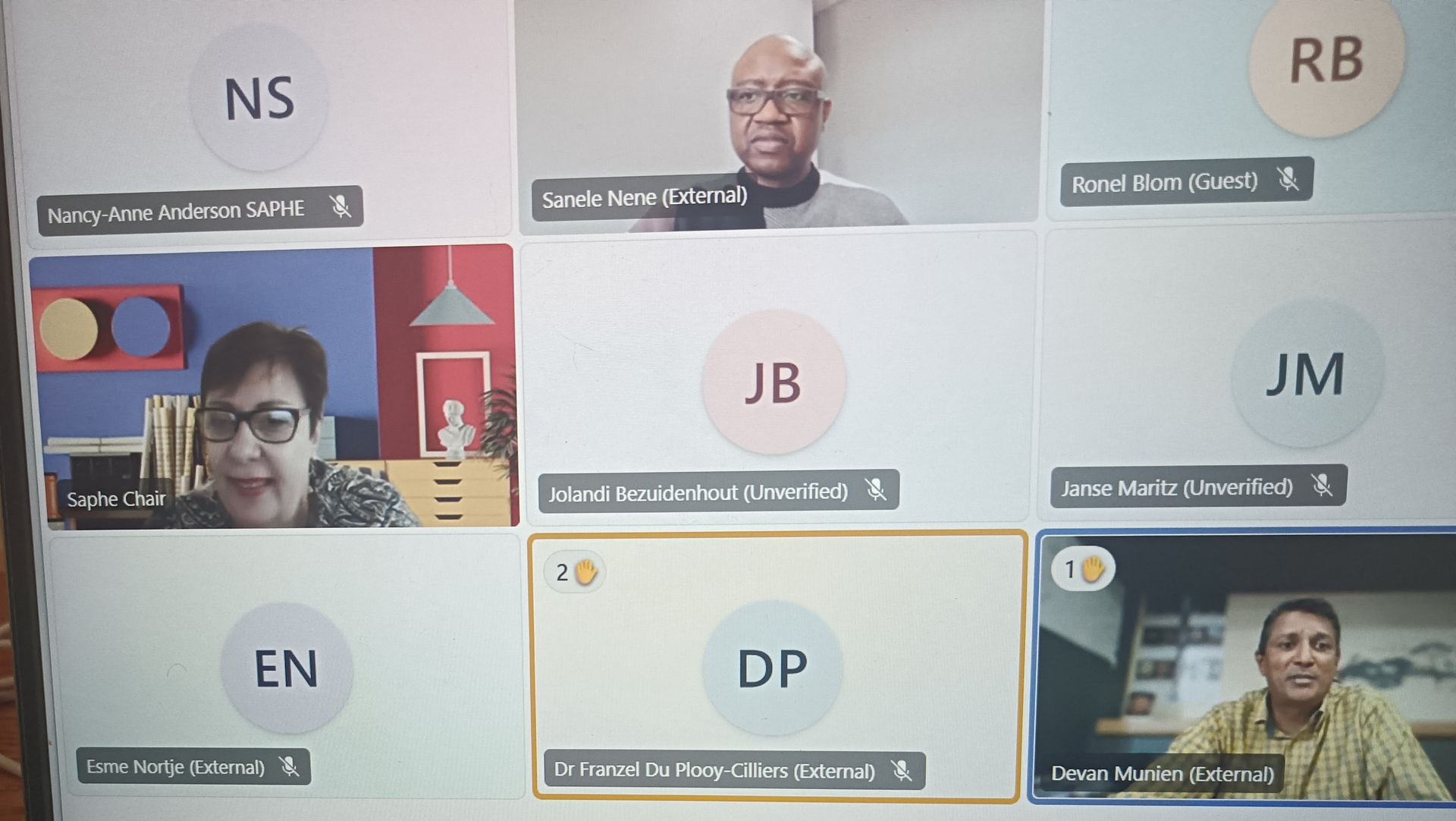
The Faranani session on 17 July examined assessment from various perspectives. With just two carefully crafted questions, David Maclean, facilitator and founder of Learning Advisory, created a space for lively conversation and engagement on the real purpose and value of assessment. The first question, What would assessment look like if it served learning rather than sorting?, prompted reflection on the difference between ‘assessment for learning’ and ‘assessment of learning’. Participants explored the role of continuous assessment as a compass that guides learning, rather than a tool for ranking or gatekeeping. The second question, How do we truly know when learning has occurred at the deepest level?, encouraged participants to share personal experiences and teaching practices that reveal meaningful learning beyond surface-level achievement. The session reframed assessment by focusing on its potential to enhance learning and support development, moving beyond its traditional role as a final evaluation tool. Embodying the spirit of a wisdom circle, the Faranani session offered space for collective reflection, shared insights, and mutual learning.

SAPHE’s first Research Community of Practice (CoP) meeting took place on Monday, 30 June, marking an important step toward strengthening research capacity and collaboration within private higher education. As research is a core pillar of higher education, SAPHE members welcomed the opportunity to engage on research-related matters. The first session focused on supporting those who have made submissions for the upcoming SAPHE Conference. A highlight of the session was a presentation on the use of AI in research. From sparking ideas to helping with literature reviews and writing, AI was framed as a powerful research tool, similar to a calculator for a mathematician or a camera for a photographer. But, the message was clear: AI can assist, but the researcher remains the author! True to the spirit of a Community of Practice, this new SAPHE initiative creates a collaborative space for sharing, questioning, and growing together. We look forward to many more engagements as this CoP evolves.
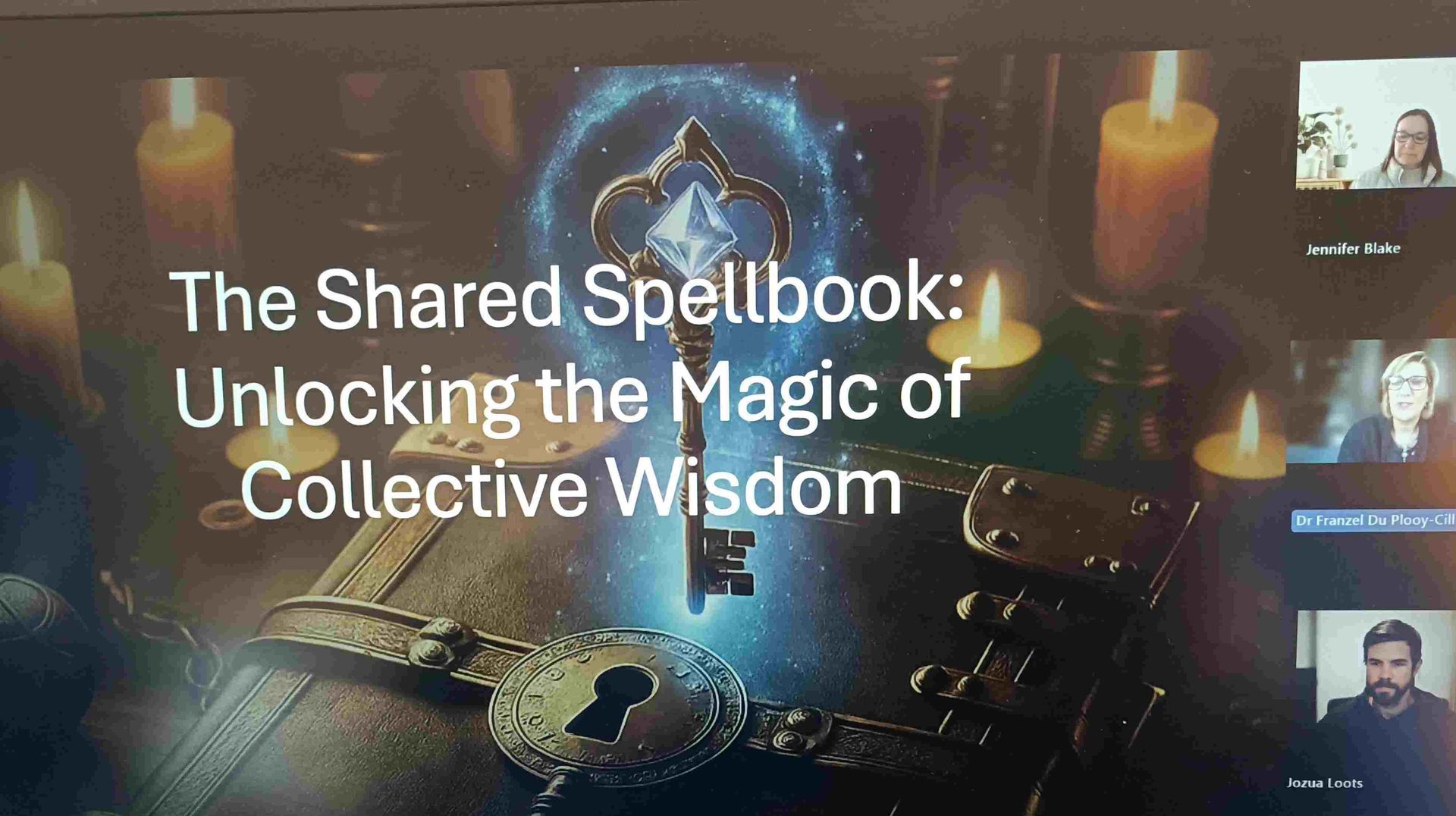
The imaginative and metaphorical title of our recent Quality Assurance Community of Practice (QA CoP) meeting, Shared spellbook: Unlocking the magic of collective wisdom, beautifully captured the spirit of the event and the collaborative energy among QA professionals from SAPHE member institutions. Leading the conversation, Dr Franzél du Plooy-Cilliers invited participants to reflect on the unique value that emerges when ideas, knowledge, and experiences are shared. Collaboration in QA doesn’t just foster innovation—it challenges complacency, inspires ongoing improvement, and raises the quality bar across institutions. The ripple effects are powerful: Not only do individual PHEIs benefit from stronger practices, but the entire higher education sector is elevated through shared commitment to quality-assured education. During the session, participants discussed common challenges, such as limited staff engagement in QA processes and the need for integrated workflows that support shared values and a common understanding. Looking ahead, key themes were identified for future QA CoP engagements. Plans are already underway for the next meeting on 14 August, where the community will continue "writing the shared spellbook" - sharing insights and best practices to improve quality. Together, the CoP is shaping a culture of excellence, collaboration, and innovation—one "spell" at a time.

In recent weeks, national discourse has intensified around the roles of public and private higher education institutions in South Africa. Economist Dawie Roodt of Efficient Group proposed a shift in the allocation of government tertiary education funding, sparking wide-ranging reactions. These include responses from university leaders like Prof Linda Du Plessis of North-West University, and a direct engagement between Dr Phethiwe Matutu, CEO of Universities South Africa, and Mr Roodt in a debate aired on Newzroom Afrika. In this context, the South African Private Higher Education (SAPHE) association, representing over 70% of students registered in private higher education institutions, would like to present its position. We firmly believe that higher education plays a critical role in shaping South Africa’s social, economic, and intellectual future. Addressing pressing challenges such as youth unemployment, skills shortages, and inequality requires an inclusive, responsive system that serves the public good, with the public and private educational sectors joining hands to address these issues collaboratively, rather than taking opposing positions. Capacity constraints While public higher education institutions form the backbone of South Africa’s skills and knowledge pipeline, capacity constraints are a growing concern. At the start of 2025, it was widely reported that the higher education system faced severe capacity constraints, with 337,158 students achieving a bachelor’s pass in matric, but only just over 200,000 first-year spaces available at public institutions. Although public institutions receive funding and are continually upgraded to accommodate more students, constrained resources impose limits. This results in large class sizes where students needing individual attention can easily be lost in the crowd. Furthermore, while first-year placements at higher education institutions in South Africa include study fields likely to lead to employable careers in South Africa, some qualifications largely focus on conceptual knowledge, which poses challenges for being employed with a developing socio-economic context like South Africa. This is where several SAPHE’s member institutions already play a vital role by offering industry-relevant qualifications focused on students' employability. Challenging divides SAPHE calls for a shift in how South Africa views its higher education sector, moving beyond outdated divides between public and private institutions. In this regard, SAPHE appreciates the position that the Council on Higher Education (CHE) has taken by referring to ‘higher education institutions’ as opposed to Public Universities and Private Higher Education Institutions. Many students already move between private and public institutions when transitioning from undergraduate to postgraduate study, and SAPHE support students in executing their preferences regarding their studies. Some private institutions are for-profit, while others have adopted non-profit models. NSFAS funding is not available to students who are registered with private higher education institutions, and many private higher education institutions leverage extensive industry partnership networks to secure bursaries for students who otherwise could not afford to study. This approach helps accommodate students from the “missing middle,” expanding access as widely as possible. The forthcoming typology framework for higher education institutions presents a significant opportunity to reset entrenched typologies and instead focus on shared responsibilities, collective impact, and student outcomes. This classification will affect the entire sector and underscores the urgent need to shift focus towards outcomes and societal impact. Public universities continue to benefit from public subsidies, while the growing private higher education sector operates through private investment and funding. This model has demonstrated sustainability, innovation, and responsiveness, especially in delivering industry-aligned programmes. Despite different approaches, all higher education institutions are evaluated by common standards such as the Quality Assurance Framework published by the Council on Higher Education (CHE). This means every institution should strive to meet the highest quality levels as measured by these shared standards. The evolving funding landscape demands a unified framework that prioritises learners rather than legacy structures. Now more than ever, we must ask: how can the sector, as a whole, equitably serve the diverse needs of South Africa’s students in a fast-changing global economy? Looking at our BRICS partners, data from the World Bank and equivalent sources (2018–2020) shows the following proportions of students enrolled in private tertiary education institutions: Brazil (2018): 73.41% Russia (2020): 17% India (2019): 57.78% China (2019): 14.43% This diversity demonstrates that private higher education can play a significant developmental role depending on a country’s context. In this regard, South Africa should engage in dialogue on how to address the needs of its youth more effectively, learning from international examples while considering our unique circumstances. Funding and research gaps SAPHE represents a growing sector of private higher education institutions (PHEIs), now serving hundreds of thousands of students across the country. According to DHET, nearly 1.3 million students were enrolled in tertiary education in 2021, with 232,915 registered in private institutions. These institutions are known for their flexible learning options and agility in aligning with industry needs. Despite their contributions, private higher education institutions are often portrayed as profit-driven and exclusive, an outdated and inaccurate narrative. While they must be financially viable, many operate as not-for-profit entities and actively secure bursaries and scholarships from industry partners to support financially needy students. In her opinion piece responding to Mr Dawie Roodt’s proposal, Prof Linda Du Plessis highlighted research as a key contribution of public higher education institutions. Most South African research that contributes to the national discourse, influences policy and solves societal problems is conducted predominantly at public institutions. While it is not accurate to suggest that private academics do not engage in research, as demonstrated by initiatives such as the annual SAPHE conference, it is an area requiring greater support. A significant contributing factor is the disparity in research funding: public universities benefit from government subsidies and access to national research grants, support which is largely inaccessible to private institutions. This inevitably affects research output. It raises an important question: Does this distinction in funding allocation truly serve the broader public interest? A diverse but unified sector Our collective goal must be to create a diverse, high-quality higher education ecosystem that expands access, supports relevant research, and advances South Africa’s social and economic development. Ultimately, the real question is not who delivers higher education, but whether that education is accessible, relevant, and transformative. Institutions, public or private, that rise to this challenge deserve to be celebrated. We envision a unified higher education system built on a shared responsibility, mutual recognition, and a collective commitment to serve every South African learner. The future of higher education should be measured by our collective ability to unlock potential, foster inclusion, and deliver real impact where it matters most—in the lives of students and the communities they serve. It is time to ask ourselves: Are we defending outdated institutional identities, or boldly redesigning a system that meets the urgent needs of our people and the future of our nation?
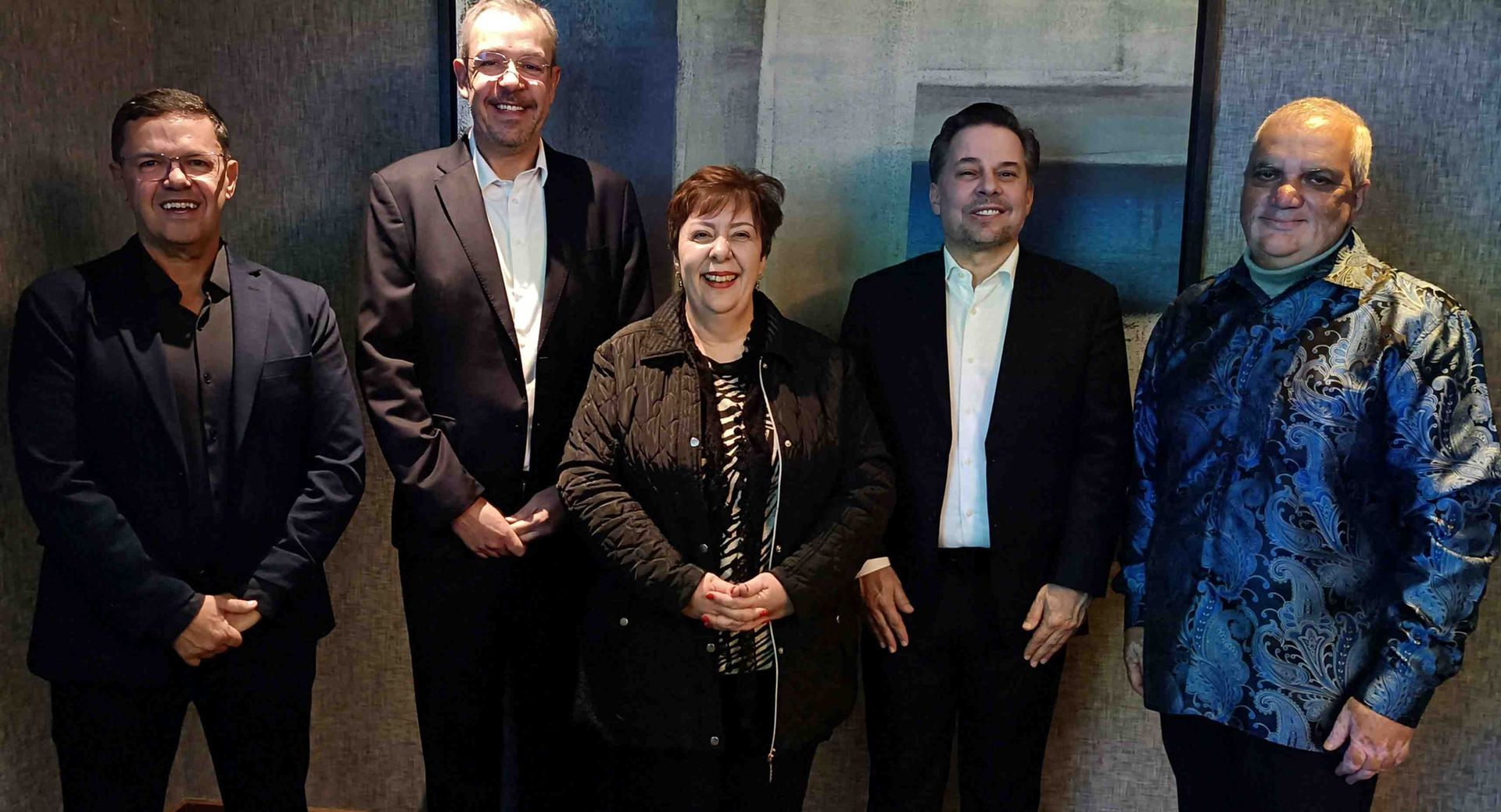
This week, SAPHE hosted a delegation from Semesp, the association representing private higher education institutions in Brazil. The visit provided a valuable opportunity for mutual learning, collaboration, and comparative dialogue between the South African and Brazilian private higher education sectors. The visit began with an insightful presentation by Dr Whitfield Green, CEO of the Council on Higher Education (CHE), who introduced the South African higher education landscape. He outlined the CHE’s role in ensuring quality, relevance, and transformation in the sector - providing essential context for the week’s discussions. In meetings with the SAPHE Board and member institutions, the Semesp delegation engaged in conversations covering a wide range of topics—from the integration of emerging technologies and AI, the promotion of entrepreneurship and collaboration with industry, effective marketing and student recruitment strategies, to distance education and strong governance and management practices within private institutions. One of the most striking comparisons highlighted during the exchange was in student enrolment figures. In Brazil, private institutions dominate the landscape: 87.8% of all higher education institutions are private. These institutions enrol nearly 8 million students, while only around 2 million attend public universities. Among these private institutions, 65.1% are for-profit. This stands in sharp contrast to South Africa, where public universities continue to enrol more than 70% of students. However, the private sector has shown significant growth in recent years, with the number of students in private higher education institutions more than doubling since 2011. With more and more South African students seeking access to higher education, it’s clear that private institutions have a key role to play in expanding capacity and helping move the sector forward. Both SAPHE and Semesp affirmed the value of such engagements to stimulate new thinking and the importance of collaboration in advancing innovation, quality, and sustainable growth in higher education.
